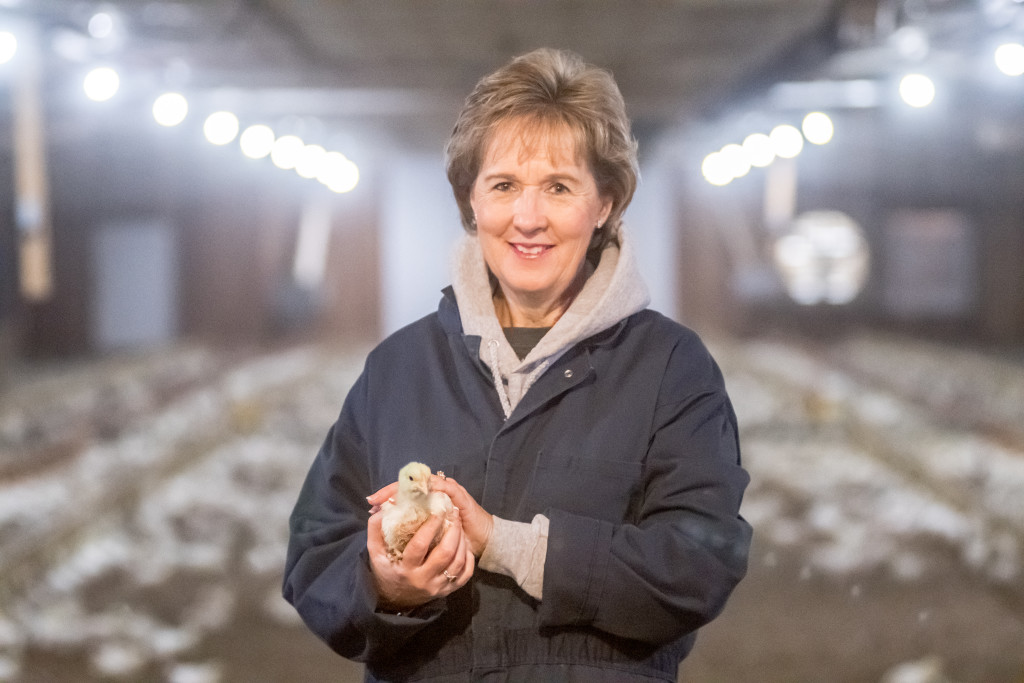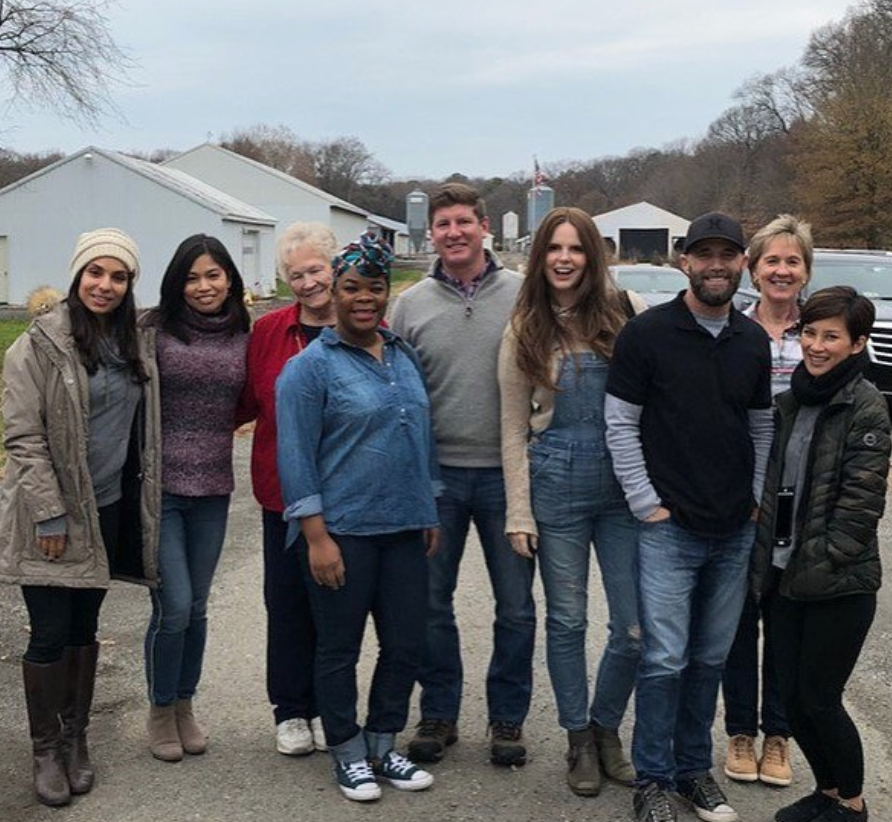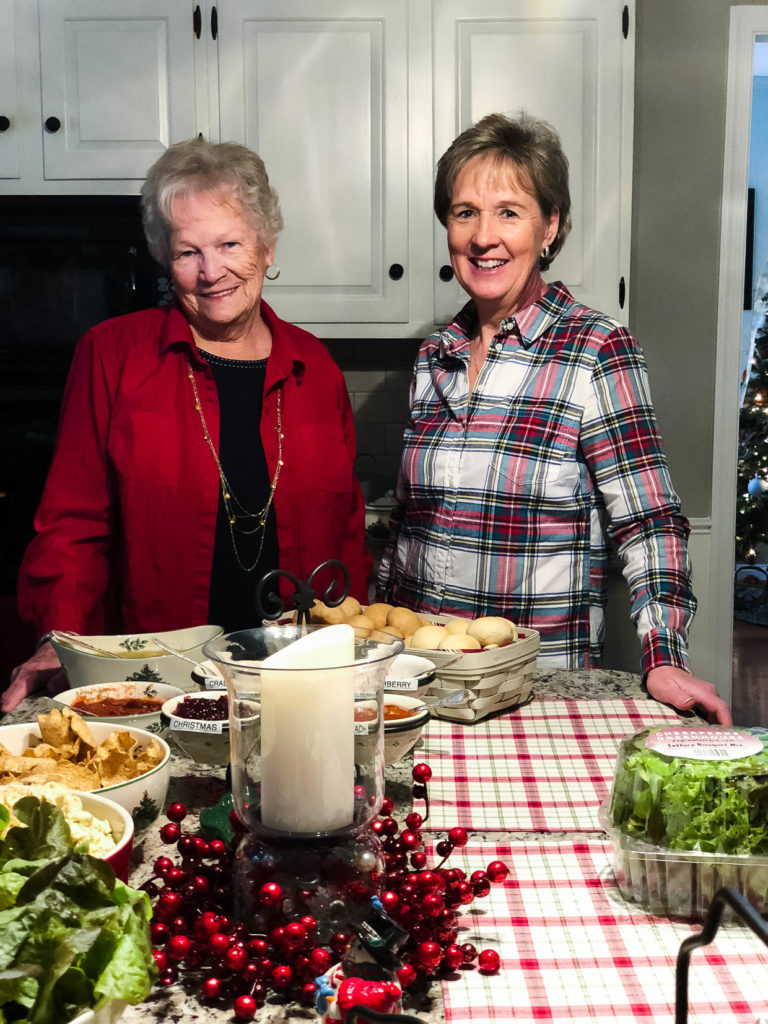We Brought the Farm to Them
This article was written by Jenny Rhodes, and was originally posted in The Delmarva Farmer on August 6, 2018.
(Editor’s note: Jenny Rhodes is an Agriculture & Natural Resources agent with the University of Maryland Extension.)

Growing up on the farm, we didn’t travel far. It was always a summer treat to spend the day at “The Harrington Fair” (officially the Delaware State Fair) and maybe a part of the day at the beach. No, not Ocean City but Conquest Beach, which was right in our Queen Anne’s County.
I seem to travel a good bit for many of the agriculture organizations of which I am involved. My mom says, “For the daughter that never liked to leave the farm, you travel more than any of your siblings.”
I recently had the opportunity to travel to New York City with the National Chicken Council. I work with NCC as a volunteer to help educate others about what we do as farmers.
The NCC is a national, non-profit trade association with the primary purpose of advocating for the U.S. broiler chicken industry in Washington, D.C.
I participated in their Chicken Summit several years ago as a panel member. Just recently, I hosted a group of social influencers — bloggers, foodies and a registered dietitian nutritionist — on my farm.

The mission of the media tour to New York was to kick off the NCC’s series of 360-degree virtual reality videos showing the various stages of chicken’s life during modern, commercial production.
Nicole Rodrigues, a registered dietitian, nutritionist and fitness expert, and Tom Super, NCC spokesperson were part of media tour. Both have visited and toured my farm in person.
The new experience is part of NCC’s Chicken Check In program, which serves as a resource for consumers to get the information they seek about how most meat chickens are raised. You can follow Chicken Check In on Facebook, Twitter, Instagram and YouTube.
The virtual reality experience was launched on July 25, on the heels of a new national survey revealing that nearly 90 percent of consumers are interested in deeper information about the chicken they buy and eat. Additionally, nearly 40 percent of consumers indicated “how chickens are cared for” as one of the top topics they care about most.
I know that people want more information about chicken production and that most have not visited a chicken farm, so through our virtual reality tours, we brought the farm to them. Viewers were able to see the way most chickens are hatched, raised and processed in the United States.
It’s a fully immersive experience. After viewing the tour through the 360-degree googles, members of the media could ask me questions about my farm.
We had a chance to meet with editors in the fields of food, film, and health from magazines such as Food Network, Redbook, Prevention, Woman’s Day, Oprah, Woman’s Health and Rachael Ray. We also made a stop to visit with the Senior Food and Beverage Editor of Nation’s Restaurant News.
They all asked good questions and seemed excited to meet a farmer. We left a packet of information for each editor as we wanted them to have a resource if they had any questions in the future.
We talked about animal welfare, nutrition, labeling, hormones, antibiotics, environment and much more.
I explained my views as a farmer and that 98 percent of farms are owned by families just like me. I told them I was very proud to be a farmer to provide safe, healthy food for consumers. Most of the editors we met with said they thought we feed our chickens hormones and steroids, so I was happy to dispel that myth!
To see all three of the virtual reality tours, visit https://www.chickencheck.in/blog/virtual-reality-tour-chicken-hatchery-farm-processing-plant/.
Nicole Rodriques, the dietician, lived in NYC while in college and now lives just outside of the city. With about 30 minutes of free time, she took me to Times Square and I got a short ride on the subway.
I love to educate others about what we do as farmers. This experience certainly put me out of my comfort zone, but it was a great experience. It makes me appreciate my farm heritage and remember that there is no place like home on my farm.
